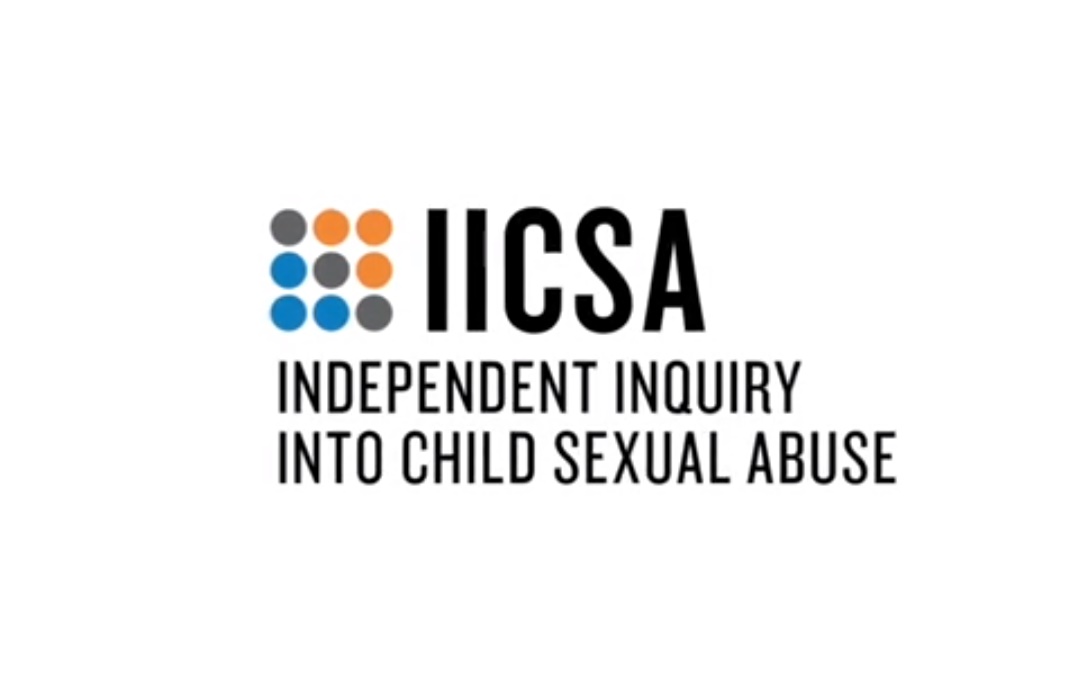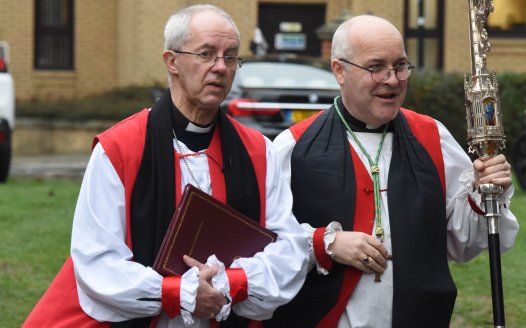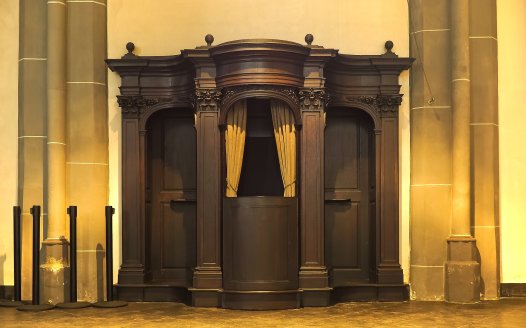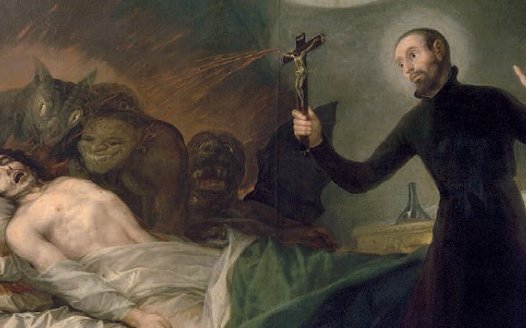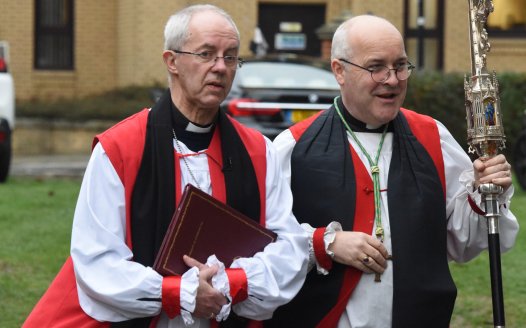The C of E can’t be allowed to keep shielding abusers from accountability
Posted: Thu, 9th May 2019 by Richard Scorer
A damning report from the Independent Inquiry into Child Sexual Abuse has highlighted the need for independent oversight of the Church of England's safeguarding procedures and a mandatory reporting law, says Richard Scorer.
In March and July 2018 the Independent Inquiry into Child Sexual Abuse (IICSA) heard four weeks of damning evidence about the sexual abuse of children and young men in the Church of England diocese of Chichester and in the monastic community headed by the now-disgraced former bishop, Peter Ball.
The diocese and the community were interconnected – during much of his time in charge of the community, Ball was also bishop of Lewes. The abuse examined in the inquiry hearings happened locally, but the cover-up went right to the top of the church and beyond, and involved not only former archbishops of Canterbury, especially George Carey, but other establishment figures including Prince Charles.
IICSA's report on Chichester and Ball was published today. What did it conclude, and what happens now?
Today's report looks at the history of sex abuse scandals in Chichester and Ball's monastic community from the 1960s onwards, and includes events right up to the present day. Amongst the report's conclusions about the diocese of Chichester are that:
- "investigations revealed serious failings in (the church's) response to allegations... Each case study provided examples of perpetrators who were able to hide in plain sight for many years".
- "in the diocese of Chichester, there were perpetrators about whom there were allegations, or even known convictions, who were provided with unrestricted access to children and young people and as a result, continued to offend".
the church "put its own reputation above the needs of victims and survivors", failing to treat them with "the compassion and dignity they deserved".
-"the church not only declined to share serious allegations with the relevant statutory authorities, but in at least one case no steps were taken to report known sexual abuse to the police by senior clergy. The absence of cooperation hindered the progress of criminal investigations… and enabled abusers to escape justice".
-"victims and survivors in the diocese of Chichester were disbelieved and dismissed by those in authority within the diocese".
Amongst the dynamics underlying abuse in the church has been a conflicted attitude to homosexuality, an anti-women culture and the church's failure to be "open, clear and transparent" about human sexuality.
In regards to Peter Ball, the report concludes that the church "seriously failed" his victims, especially Neil Todd (the first of Ball's victims to complain publicly, who ultimately took his own life). The report is especially damning about the actions of Lambeth Palace and former archbishop George Carey. Noting that Lambeth Palace and Carey received seven letters capable of supporting Todd's allegations against Ball, it condemns their failure to pass all but one of these letters to the police. It concludes that there was "no excuse" for this failure and that Carey's own letter to the chief constable of Gloucestershire in support of Ball during the police investigation in 1993 was inaccurate and inappropriate.
It says it was his "responsibility to display strong leadership and act decisively" - and "he did neither". It says "almost every aspect of his decision-making regarding Peter Ball indicates poor judgement and a failure to recognise the appalling experiences of Ball's victims".
Looking more widely at the actions of the British establishment in support of Ball during this period and later, the report is critical of the Crown Prosecution Service's failure to prosecute Ball in 1993. It also criticises Lord Lloyd, a former law lord and friend of Ball, for seeking to influence the police against prosecution of Ball. And it criticises Prince Charles, a friend of Ball, for his support of the disgraced cleric, concluding that his actions were "misguided".
What happens next, and what does the report mean for the Church of England as a whole? Chichester and Ball were two case studies within IICSA's Anglican Church module. The overall IICSA investigation into the Church of England will only conclude later this summer, after a final hearing examining how the church has handled a sample of recent allegations from around the country, and how it handles reparations to victims and survivors.
Today's report contains some welcome initial recommendations, for example in relation to amendment of safeguarding-related aspects of canon law, and that the Sexual Offences Act 2003 be amended to include clergy within the definition of "position of trust". The latter reform, which the NSS's president Keith Porteous Wood has been advocating for some time, would criminalise sexual activity between clergy and persons aged between 16 and 18 over whom they exercise pastoral authority.
However, IICSA's definitive verdict on the reforms required to prevent repetition of these appalling events will only come after the final Anglican Church hearing in July. In my view today's damning conclusions can point in only one direction: safeguarding in the Church of England needs to overseen by a permanent independent body, capable not only of investigating complaints independently of the church, but also of enforcing decisions and reforms over the heads of the bishops. And alongside that, we need mandatory reporting laws which ensure that reporting of allegations to the statutory authorities is a legal requirement, not a choice.
For victims and survivors, and those who work alongside and advocate for them, the need for these changes has been obvious for some time. This is not to decry the work of good people in the church who want to root out abuse. But the problems in the church go far deeper than any one individual: they are structural, cultural and theological.
Bishops remain hopelessly unaccountable, and as the fiasco of the Past Cases Review confirmed, far too many of them have skeletons in their own cupboards in the form of past cover ups to be reliable cleansers of the stables. Those investigating complaints in the church are sometimes too closely implicated in close knit church communities to act independently and objectively. The clergy discipline measure (CDM) is a hopelessly unwieldy vehicle for imposing accountability, a reality confirmed in today's report which concluded that the CDM is a "flawed and inappropriate means by which to address safeguarding concerns" and "does not provide an adequate route to resolving safeguarding complaints timeously and fairly". As an analysis by the campaign group Mandate Now demonstrated, church safeguarding procedures remain opaque and muddled, particularly when it comes to the question of reporting of abuse to the statutory authorities.
Moreover, despite an increasing awareness amongst progressive theologians of how religion and theology can be used to protect abusers, little of that understanding seems to have permeated the church hierarchy. Last year I attended the general synod in York, and the session dedicated to safeguarding was followed by a prayer and speech from archbishop John Sentamu. Not only is Sentamu himself the subject of complaints relating to the cover up of abuse, but in his own speech – emphasising the importance of forgiveness – Sentamu was clearly oblivious to the ways in which Christian notions of forgiveness have often been used to shield abusers from accountability.
Today's report is rightly critical of senior figures within the church who facilitated abuse or at least turned a blind eye to it, but it also highlights the much deeper cultural and theological context in which these failings occurred. It is already clear to victims and survivors that only radical reform and external oversight of the Church can tackle this: we will be making that argument at the final IICSA hearing this year, and hoping for the sake of future generations that these changes can be mandated by IICSA sooner rather than later.
While you're here
Our news and opinion content is an important part of our campaigns work. Many articles involve a lot of research by our campaigns team. If you value this output, please consider supporting us today.

